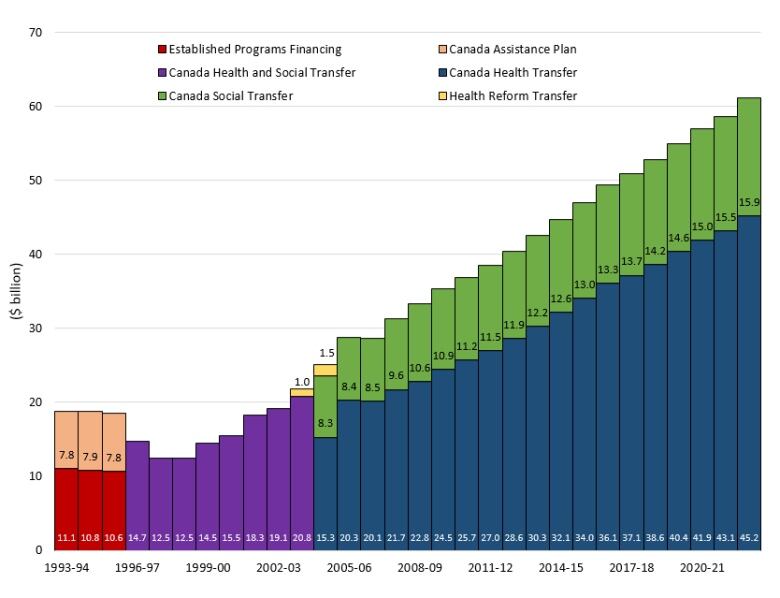$28 billion may not be enough to fix Canada's ailing health-care system: Analyst
Steven Lewis says structural change needed to Canadian health care
As Canadian premiers head to Ottawa hoping to secure an additional $28 billion in federal funding to resuscitate Canada's ailing health-care system, one analyst says money alone won't save the system.
"If you don't invest it in change as opposed to temporarily patching the crack, we will find ourselves in the same boat five years from now," said Steven Lewis, a health policy analyst and adjunct professor at Simon Fraser University.
"Is this primarily a money or capacity problem, or are we doing something fundamentally wrong with how we organize health care?"
On Tuesday, Canadian premiers are set to meet with Prime Minister Justin Trudeau.
They want Ottawa to increase the Canada Health Transfer to provinces by $28 billion, which they say would bring Ottawa's share of heath-care funding to 35 per cent from 22 per cent. Currently Ottawa transfers $45.2 billion to provinces for health-care spending.
Ottawa says when tax points transferred to the provinces in 1977 are included, the federal share is closer to 38 per cent.
Saskatchewan Premier Scott Moe told reporters prior to departing for Ottawa Sunday that the money is needed to help sustain initiatives in the provincial health-care system aimed at reducing surgery wait times and adding as many as 200 addictions treatment beds.
"I'm hoping to see a deal done, if not today, in the very near future," Moe said.
"I think the expectations that the public can have is that the investments that are being made today in province after province will be sustainable then into the future."
Money alone won't fix it: Lewis
But Lewis said Ottawa has upped its funding contributions for health care in the past with mixed results.
"Everyone agrees something needs to be improved. The question is whether the money is going to improve it a lot and there are some historical reasons to suggest money alone won't."
Ottawa added "enormous amounts of money" to federal health transfers between 2000 and 2004 with little long-term benefit, Lewis said.

Then in 2004 the provinces and Ottawa agreed on a 10-year plan with a six per cent annual escalator, which also failed to fix the system, Lewis said.
"We still find ourselves with five to six million Canadians without a medical home or a regular source of primary care."
Lewis said Canada has more family doctors than ever before, but many have closed their costly practices and are instead working as hospitalists or in walk-in-clinics — which leaves patients without a primary physician.
If Ottawa agrees to the premier's funding request, it should come with conditions aimed at structural changes to the system, Lewis said.
He recommended moving to a "teams approach" for health care, which would bring several doctors and disciplines into one setting and give patients access to a full complement of care.
"Until we start looking at those systemic problems and figuring out how to improve the flow of patients through the system — and particularly how to serve people who are waiting a dangerously long period — then there may not be any long-term fix to this problem."

